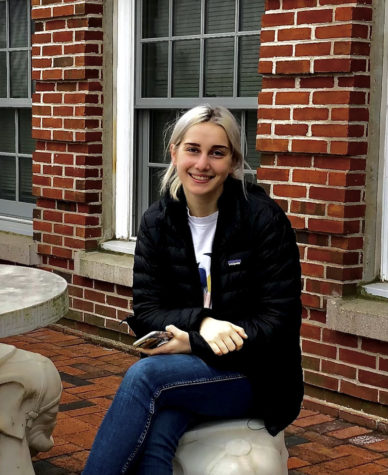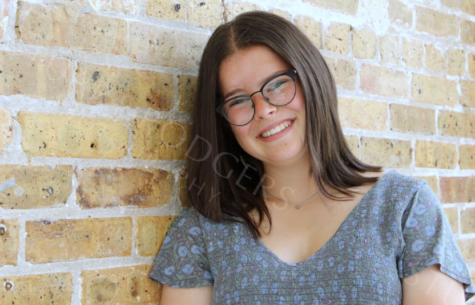Students reflect on conclusion of first semester with adaptive pause
After ETHS saw the highest surge in COVID-19 cases the institution has seen this year, jumping from 21 the week of Dec. 3 to 129 the week of Dec. 10, the school moved to an adaptive learning plan for the remainder of semester one. The move was announced on Dec 16, and came after both a spike in COVID-19 cases and a two-hour lockdown due to an incident in the school involving handguns.
According to the email sent by ETHS on Dec. 16 announcing the adaptive pause, Superintendent Eric Witherspoon wrote, “The Adaptive Pause is a short-term mitigation strategy that allows time for local health officials to gain a better understanding of the COVID situation impacting the school.”
As of this year, a school hoping to employ an adaptive pause as a mitigation strategy against COVID-19 must gain approval from Illinois State Board of Education (ISBE).
As outlined by ISBE, schools needing to enter an adaptive pause must provide a remote learning option for all students. This decision also cannot be made without consultation with a local health department; in the case of ETHS, the school consulted with the City of Evanston Health Department.
Despite the existing outline for an adaptive pause, ISBE emphasizes the necessity of maintaining in-person learning as often as possible and only employing remote options under severely dire circumstances.
“The majority of students need full-time in-person access to their teachers and support network at school to stay engaged, to learn effectively, and to maintain social-emotional wellness,” the Illinois Department of Health stated in its official guidance. “A recent study from the CDC suggests that remote learning can be challenging for many students, leading not only to learning loss, but also worsening mental health for children as well as parents.”
While ETHS’ adaptive pause is unlike any COVID protocol that has been implemented this year, many students recall feeling as if a period of remote learning could have been foreseen, given the number of active COVID cases.
“I was not surprised at all; my mother already guessed that we would be going back to remote learning,” freshman Nadira Bumi says.
The lack of surprise from students regarding the change to remote learning could be attributed to closures and cancellations ETHS had been making throughout the week of Dec 13.
Prior to the announcement of the adaptive pause, the ETHS administration announced that all extracurriculars, clubs and sports would be canceled through the beginning of winter break. This was later part of the larger adaptive pause announcement, which was pushed out just a few hours later.
Despite many students predicting a period of remote learning prior to the start of the week the adaptive pause began, some were concerned about how the week would go and were frustrated to be seemingly taking steps backward in efforts toward normalcy.
“I was waiting for them to shut down the school because so many kids [were] getting sick,” junior Lily Straussman explains. “I knew it was the best option, but when I got the email I [felt] like I really didn’t want to go back online because last year was awful [for me].”
While other students were not as affected by this change, nearly all students remain concerned about the reason for the adaptive pause, citing a fear that COVID cases will continue to spike.
“It’s sad how we’re going back to how it was in the beginning of the pandemic, but I would rather go back to e-learning than to have the virus spreading around even more,” Bumi expresses.
Some students even enjoyed aspects of remote learning last year and are finding value in the adaptive pause, especially as it is situated before winter break.
“My immediate reaction is happy, because all the other schools have a break next week, so I was hoping ETHS would do the same, and e-learning is definitely a lot more chill,” sophomore Yixuan Liu says. “I think it will go pretty great. I enjoyed e-learning last year, and I think it will be better now that I know people in my classes.”
Regardless of the challenges that the adaptive pause may pose, students are already looking forward to returning to the ETHS building after winter break.
“Hopefully by Jan. 10 we’ll be able to go back to school,” Straussman says. “Or that enough kids will get their boosters over the next week that people will travel, come back, and maybe [some people] get sick, but not as many as [without boosters].”
Your donation will support the student journalists of the Evanstonian. We are planning a big trip to the Journalism Educators Association conference in Nashville in November 2025, and any support will go towards making that trip a reality. Contributions will appear as a charge from SNOSite. Donations are NOT tax-deductible.





